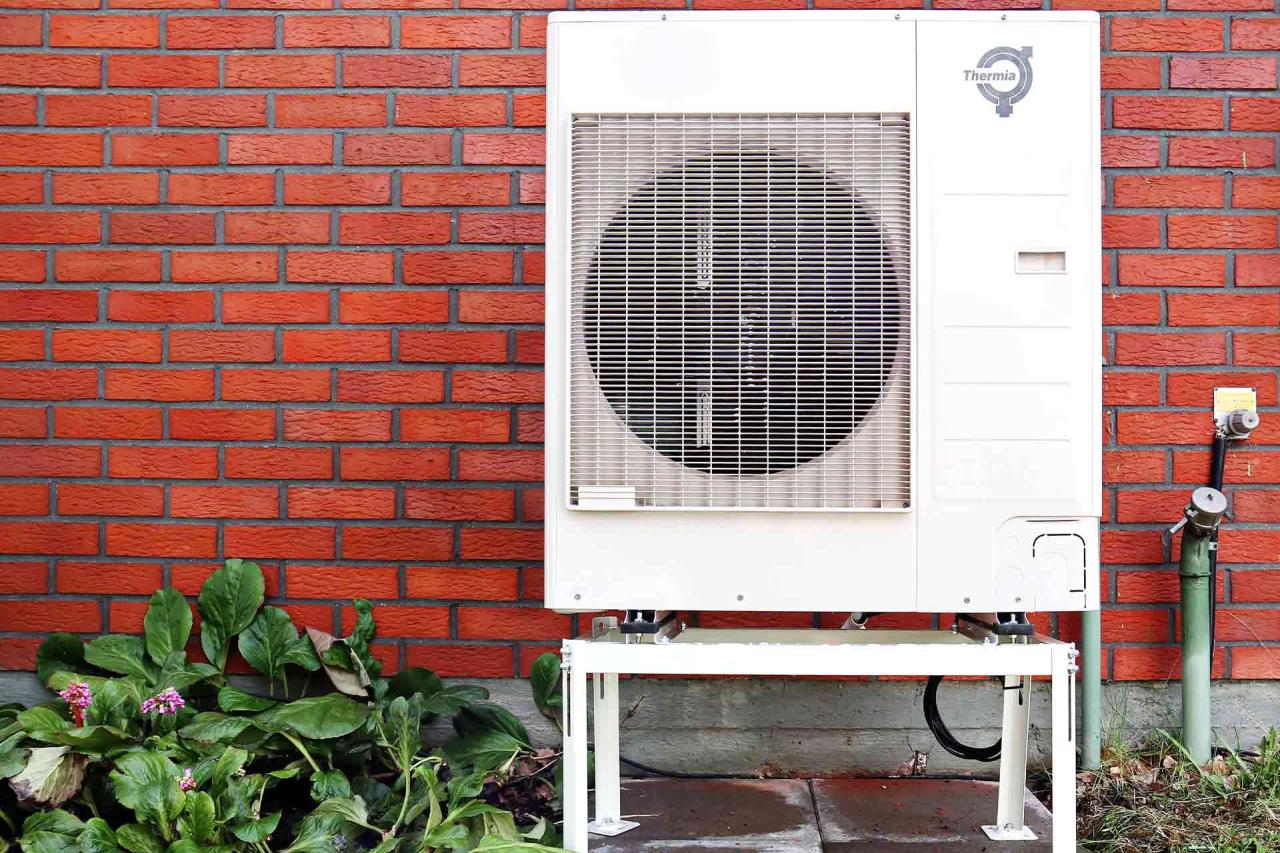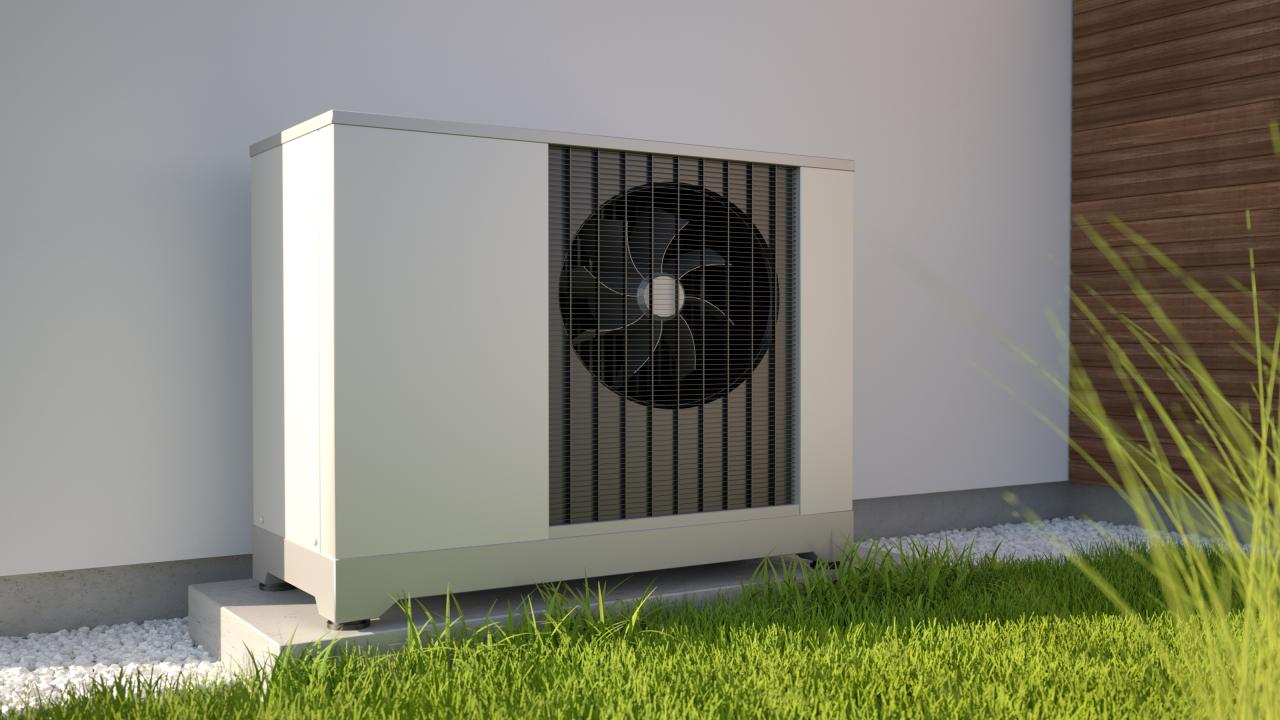Eco-Friendly Heating and Air Systems Near Me: A Guide to Sustainable Living

Exploring eco-friendly heating and air systems near me opens a door to a world where sustainability meets comfort. From reducing carbon footprints to embracing environmentally friendly alternatives, this topic delves into the essence of a greener lifestyle.
As we navigate through the different types of eco-friendly systems, installation procedures, and maintenance tips, the journey towards a more eco-conscious living unfolds with each paragraph.
Importance of Eco-Friendly Heating and Air Systems
Eco-friendly heating and air systems play a crucial role in promoting sustainable living practices by reducing energy consumption and minimizing environmental impact.
Environmental Benefits of Eco-Friendly Systems
- Lower Carbon Emissions: Eco-friendly systems utilize renewable energy sources such as solar or geothermal power, significantly reducing carbon emissions compared to traditional heating and air systems.
- Energy Efficiency: These systems are designed to operate more efficiently, consuming less energy and reducing overall energy usage, which helps in conserving natural resources.
- Improved Air Quality: Eco-friendly systems often incorporate advanced air filtration technology, leading to better indoor air quality and reducing health risks associated with poor air circulation.
Reducing Carbon Footprint with Eco-Friendly Systems
- Use of Renewable Energy Sources: By harnessing renewable energy like solar or wind power, eco-friendly systems help in reducing reliance on fossil fuels and decreasing carbon footprint.
- Energy Conservation: Eco-friendly systems are designed to be energy-efficient, resulting in lower energy consumption and minimizing greenhouse gas emissions that contribute to global warming.
- Long-Term Sustainability: Investing in eco-friendly heating and air systems not only benefits the environment but also ensures a sustainable future by reducing the overall carbon footprint of a household or building.
Types of Eco-Friendly Heating and Air Systems

When it comes to eco-friendly heating and air systems, there are several options available that can help reduce energy consumption and carbon emissions. These systems are designed to be more efficient and environmentally friendly compared to traditional heating and cooling systems.
Eco-Friendly Heating Systems
- Geothermal Heat Pumps: This system utilizes the constant temperature of the earth to heat and cool a home, making it highly efficient and eco-friendly.
- Solar Heating Systems: Solar panels are used to capture energy from the sun and convert it into heat, reducing reliance on traditional energy sources.
- Biomass Heating Systems: These systems burn organic materials like wood pellets or agricultural waste to generate heat, providing a renewable energy source.
Eco-Friendly Air Conditioning Systems
- Ductless Mini-Split Systems: These systems are more energy-efficient than traditional central air conditioning units and allow for zoned cooling, reducing energy waste.
- Air Source Heat Pumps: This system extracts heat from the outside air and transfers it indoors for heating or removes heat from indoors for cooling, offering a more sustainable option.
- Evaporative Coolers: Also known as swamp coolers, these systems use water evaporation to cool the air, consuming less energy than traditional air conditioners.
Installation and Maintenance of Eco-Friendly Systems

When it comes to eco-friendly heating and air systems, proper installation and regular maintenance are crucial to ensure optimal performance and longevity. Here is a step-by-step guide on how to install eco-friendly heating systems and some tips for maintaining eco-friendly air systems.
Installing Eco-Friendly Heating Systems
- Choose the right system: Select an eco-friendly heating system that is suitable for your home size and heating needs.
- Hire a professional: It is recommended to hire a certified HVAC technician to install the system correctly and safely.
- Positioning: Ensure the system is installed in a well-ventilated area away from obstructions for efficient operation.
- Connectivity: Properly connect the system to the power source and thermostat for seamless functionality.
- Testing: Test the system after installation to ensure it is working correctly and efficiently.
Maintaining Eco-Friendly Air Systems
- Regular cleaning: Keep the air filters, vents, and ducts clean to maintain optimal airflow and air quality.
- Temperature control: Set the thermostat to energy-efficient temperatures to reduce energy consumption.
- Inspect for leaks: Regularly check for leaks in the ductwork and seal them to prevent energy wastage.
- Schedule professional servicing: It is essential to schedule regular servicing by HVAC professionals to identify and address any issues promptly.
- Monitor performance: Keep an eye on the system's performance and energy consumption to detect any irregularities early on.
Finding Eco-Friendly Heating and Air Systems Near Me
When searching for eco-friendly heating and air systems in your local area, there are several key factors to consider to ensure you make the best choice for your needs. It's important to look at factors such as energy efficiency, cost, and the environmental impact of the system.
Key Factors to Consider
- Energy Efficiency: Look for systems that are energy-efficient and can help reduce your overall energy consumption.
- Cost: Compare prices of different eco-friendly heating and air systems to find one that fits your budget.
- Environmental Impact: Consider the environmental impact of the system and choose one that has minimal greenhouse gas emissions.
Sources to Find Suppliers/Installers
- Local HVAC Companies: Check with local heating, ventilation, and air conditioning companies to see if they offer eco-friendly options.
- Online Directories: Look for online directories that list suppliers and installers of eco-friendly heating and air systems in your area.
- Green Building Organizations: Contact green building organizations or associations in your area for recommendations on eco-friendly system providers.
Comparing Prices and Reviews
- Online Reviews: Read reviews from customers who have installed eco-friendly heating and air systems to get an idea of their experiences.
- Get Multiple Quotes: Obtain quotes from different providers to compare prices and services offered before making a decision.
- Ask for Recommendations: Seek recommendations from friends, family, or neighbors who have eco-friendly systems installed to get firsthand feedback.
Last Word
In conclusion, the quest for eco-friendly heating and air systems near me is not just about finding the right provider, but about making a conscious choice for a better future. By understanding the importance of these systems and how they contribute to a sustainable environment, we pave the way for a greener tomorrow.
Question Bank
What are the benefits of using eco-friendly heating and air systems?
Eco-friendly systems help in reducing carbon footprints, promoting sustainability, and contributing to a healthier environment.
How can I find suppliers/installers of eco-friendly heating and air systems near me?
You can search online directories, check with local environmental organizations, or ask for recommendations from friends and family.
Is regular servicing important for eco-friendly heating and air systems?
Yes, regular servicing ensures the efficiency and longevity of eco-friendly systems, maintaining their optimal performance.

